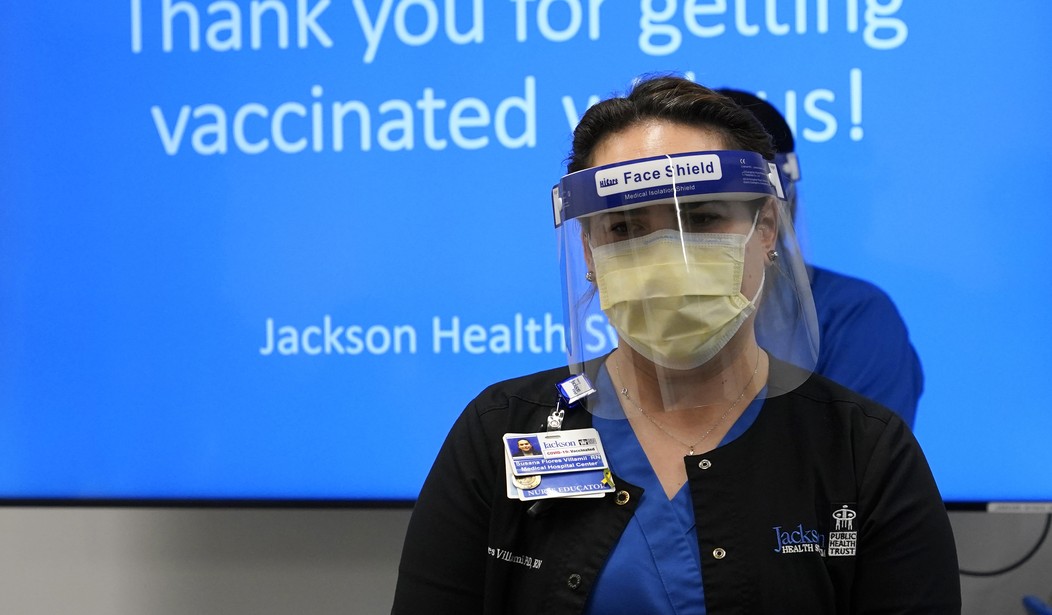The New York Times is reporting on two new peer-reviewed studies that show how “immunity to the coronavirus lasts at least a year, possibly a lifetime, improving over time especially after vaccination.”
“Together, the studies suggest that most people who have recovered from Covid-19 and who were later immunized will not need boosters,” said the Times. If you haven’t been previously infected and received a vaccine, it’s still possible you will need a booster shot.
Researchers looked at cells that retain a memory of the virus that persists in the bone marrow and may churn out antibodies whenever needed, according to one of the studies, published on Monday in the journal Nature. The strong presence of coronavirus antibodies would make a booster shot unnecessary.
The other study, published at BioRxiv, a site for biology research, “confirmed these so-called memory B cells continue to mature and strengthen for at least 12 months after the initial infection.”
“The papers are consistent with the growing body of literature that suggests that immunity elicited by infection and vaccination for SARS-CoV-2 appears to be long-lived,” said Scott Hensley, an immunologist at the University of Pennsylvania.
The studies may soothe fears that immunity to the virus is transient, as is the case with coronaviruses that cause common colds. But those viruses change significantly every few years, Dr. Hensley said. “The reason we get infected with common coronaviruses repetitively throughout life might have much more to do with variation of these viruses rather than immunity,” he said.
In fact, memory B cells produced in response to infection with SARS-CoV-2 and enhanced with vaccination are so potent that they thwart even variants of the virus, negating the need for boosters, according to Michel Nussenzweig, an immunologist at Rockefeller University in New York who led the study on memory maturation.
“People who were infected and get vaccinated really have a terrific response, a terrific set of antibodies, because they continue to evolve their antibodies,” Dr. Nussenzweig, one of the researchers, said. “I expect that they will last for a long time.”
That’s excellent news for policymakers who have been wrestling with trying to get enough people to be vaccinated in the first place. If a booster shot will be required, how many vaccinated people would go to the trouble of getting it?
Related: Here’s the Most Interesting Thing in the CDC Data About Post-Vaccine COVID Breakthrough Infections
The trick is in the body’s “B” cells that reside in the bone marrow. Researchers believe that these B cells can survive for decades, and when COVID infection threatens, can be let loose to flood the body with coronavirus antibodies. This immune response appears to be strongest for those who were infected with COVID-19 and also received the vaccine. It’s weaker for those who only received the vaccine or who recovered from the virus but have not been vaccinated.
Senator Rand Paul has recently indicated he won’t be vaccinated because he’s already been infected and is immune. The studies suggest that the Senator may be right — up to a point. Long-term COVID immunity may be more complicated than anyone can say with certainty.
More studies need to be done and it will be an ongoing investigation given that there are so many unknowns about the virus and the vaccine’s interaction with the body. But for those who have recovered from the virus and choose to be vaccinated, it’s reassuring to know that the immune response remains strong for at least a year.










Join the conversation as a VIP Member